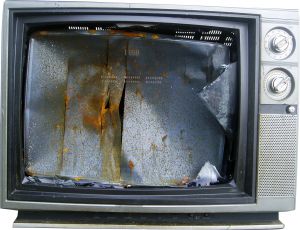
By Evan Fischer
Sponsored Guest Contributor
Years ago, parents worried about the effect television would have on the young minds of their children. Heck, parents are still worried about that, today! Then came video games and the questions about what simulated violence might do to impressionable youth. And of course, the internet posed a serious concern with unlimited access to information (not all of it true), adult content, and the potential to be targeted by predators even inside the home.
In short, the Electronic Revolution has often created conundrums for concerned parents. And yet, the benefits to be gained from these many gadgets so heavily outweigh the possible drawbacks that most adults feel they cannot deny their children the opportunity to expand their minds, broaden their world view, connect with other kids across the globe, and even improve their motor skills through the many electronics now on the market.
So now our homes and lives are filled with electronics, but what do we do with them once the devices have outlived their usefulness or powered down for good?
You might not even know yourself what to do with a monitor that has fizzled out, a game console that has become obsolete, or a cell phone that refuses to hold a charge. Can these old electronics be repaired, and is it even worth the effort and expense? Could you sell or donate them? And how would you go about recycling? These are all valid questions that bear consideration, especially if you have taken the stance that a certain level of environmental consciousness is necessary to ensure that there is actually a world for your children to live in once you’re gone.
In truth, there are many options when it comes to keeping hazardous electronic waste out of the landfill, and the three R’s can guide you here: Reduce, Reuse, and Recycle.
You can reduce the amount of trash leaving your home by repairing older electronics. There is always going to be a newer, better, faster model out there thanks to rapid technological advancement, but that doesn’t mean your old device will no longer suit your needs. So try to hang on to electronics as long as possible. There are lots of resources on the web to help you fix and maintain whatever might break in your home.
You may also reuse these items in a variety of ways, by sending them off to a new home (if they’re still in working order) as a donation, giving them a second life through resale (Craigslist might help you here), or even turning them into art installations (computer monitor fish tank or GLC-LH-SM photo frame, for example). And for devices that no longer work, or even just the parts that are potentially harmful (like mercury tubes), you can call your local trash service for a hazardous materials pickup (they often provide this service free at least once a year).
But even after you’ve figured out how to recycle, you still need to get kids onboard and doing their part, and that’s not always easy. Luckily, most kids learn well by example, so acting as a positive role model and being proactive about recycling is a good way to start. Plus, they’re bound to appreciate the act of recycling old electronics if they know it means they’re about to get a replacement. You can even find recycling games and activities online to help them understand the importance of sustainability and waste reduction in a fun way. In short, the very tools that they’ll eventually recycle can help them to adopt an eco-friendly attitude today.
Great Sites for More Information:
- United States Environment Protective Agency (EPA)
- EcyclingCentral.com
- Earth911.com search for recycle centers near you
- Gazelle.com reCommerce site (helps you sell your old electronics)
About the Author:
Evan Fischer is a freelance writer and part-time student at California Lutheran University in Thousand Oaks, California. He enjoys writing about the latest tech news for a variety of companies and discovering new and innovative gadgets.

